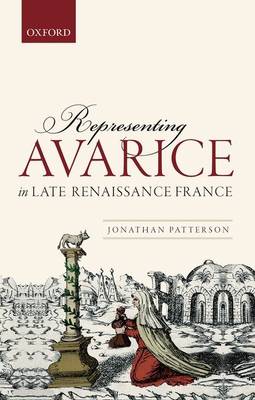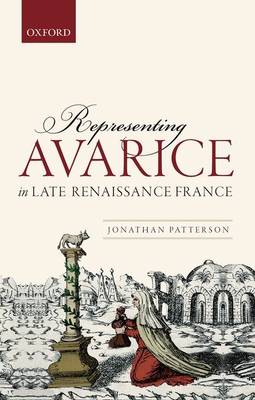
- Retrait gratuit dans votre magasin Club
- 7.000.000 titres dans notre catalogue
- Payer en toute sécurité
- Toujours un magasin près de chez vous
- Retrait gratuit dans votre magasin Club
- 7.000.000 titres dans notre catalogue
- Payer en toute sécurité
- Toujours un magasin près de chez vous
168,45 €
+ 336 points
Description
Why did people talk so much about avarice in late Renaissance France, nearly a century before Moliere's famous comedy, L'Avare? As wars and economic crises ravaged France on the threshold of modernity, avarice was said to be flourishing as never before. Yet by the late sixteenth century, a number of French writers would argue that in some contexts, avaricious behaviour was not straightforwardly sinful or harmful. Considerations of social rank, gender, object pursued, time, and circumstance led some to question age-old beliefs. Traditionally reviled groups (rapacious usurers, greedy lawyers, miserly fathers, covetous women) might still exhibit unmistakable signs of avarice -- but perhaps not invariably, in an age of shifting social, economic and intellectual values. Across a large, diverse corpus of French texts, Jonathan Patterson shows how a range of flexible genres nourished by humanism tended to offset traditional condemnation of avarice and avares with innovative, mitigating
perspectives, arising from subjective experience. In such writings, an avaricious disposition could be re-described as something less vicious, excusable, or even expedient. In this word history of avarice, close readings of well-known authors (Marguerite de Navarre, Ronsard, Montaigne), and of their lesser-known contemporaries are connected to broader socio-economic developments of the late French Renaissance (c.1540-1615). The final chapter situates key themes in relation to Moliere's L'Avare. As such, Representing Avarice in Late Renaissance France newly illuminates debates about avarice within broader cultural preoccupations surrounding gender, enrichment and status in early modern France.
perspectives, arising from subjective experience. In such writings, an avaricious disposition could be re-described as something less vicious, excusable, or even expedient. In this word history of avarice, close readings of well-known authors (Marguerite de Navarre, Ronsard, Montaigne), and of their lesser-known contemporaries are connected to broader socio-economic developments of the late French Renaissance (c.1540-1615). The final chapter situates key themes in relation to Moliere's L'Avare. As such, Representing Avarice in Late Renaissance France newly illuminates debates about avarice within broader cultural preoccupations surrounding gender, enrichment and status in early modern France.
Spécifications
Parties prenantes
- Auteur(s) :
- Editeur:
Contenu
- Nombre de pages :
- 336
- Langue:
- Anglais
Caractéristiques
- EAN:
- 9780198716518
- Date de parution :
- 29-03-15
- Format:
- Livre relié
- Format numérique:
- Genaaid
- Dimensions :
- 216 mm x 140 mm
- Poids :
- 521 g







